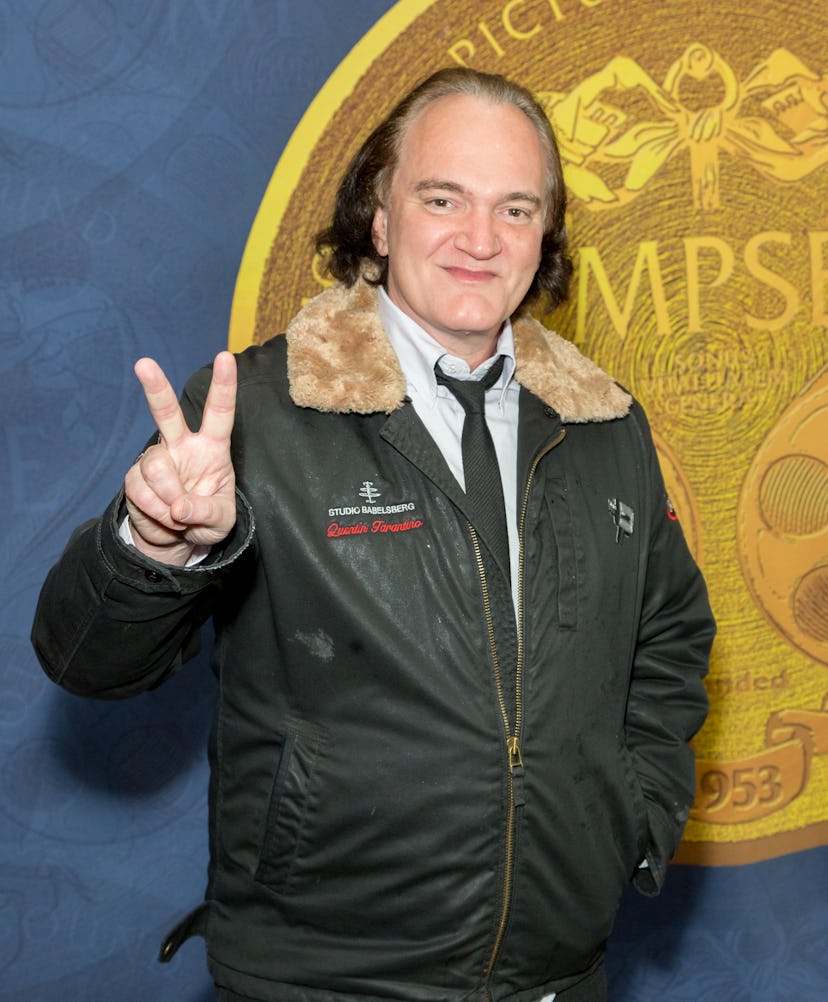Two years ago, Quentin Tarantino famously told an audience at the Jerusalem Film Festival that he planned to make just 10 films before retiring, beginning with Reservoir Dogs. (True Romance, the Tony Scott-directed movie Tarantino wrote, apparently doesn’t make the cut, perfect as it is.) The rules, it seems, are somewhat fungible—“Even if at 75, if I have this other story to tell, it would still kind of work because that would make those 10,” he said at the time, “It doesn’t contaminate the other 10”—so it’s not clear if the director’s latest idea would make the cut, but here it is anyways. According to a new report by Deadline, Tarantino devised a concept for a new Star Trek film, told J.J. Abrams (the producer of the most recent cinematic reboots of the series), and, because there is an immense amount of privilege in being a respected white male auteur, is now planning to convene a writer’s room to execute his idea. Then, the pitch goes, he might direct the movie. Might. Let’s just hope it doesn’t interfere with his retirement plans.
It would make number 10 of Tarantino’s proposed 10 films, with the ninth being the upcoming Manson murders film, in which Margot Robbie is maybe playing Sharon Tate. Of course, it’s possible that Tarantino taking up the mantle of someone else’s franchise wouldn’t even count, given that the rules are loose at best. (Death Proof, which he co-headlined with Robert Rodriguez, doesn’t figure into the 10, either.)
The majority of Tarantino’s films, including Pulp Fiction, Kill Bill, and Jackie Brown, were produced by Harvey Weinstein’s Miramax company or The Weinstein Company; after Weinstein was felled by accusations of rampant, systematic sexual misconduct two months ago, Sony picked up the upcoming Manson murders film, and, according to Deadline, Paramount is eyeing the new Star Trek. “I knew enough to do more than I did,” Tarantino told the New York Times in a confessional interview about his work with the disgraced, predatory producer in October. It appears Tarantino is not being held back in any way by his “complicity” with regard to Weinstein.
Given the ongoing debate, as year-end lists begin to emerge, about whether film or television critics get to claim the new Twin Peaks: The Return as their own, and given how many film directors, whether Steven Soderbergh or David Lynch or Paolo Sorrentino, have ventured into TV lately, it’s also entirely possible Star Trek presages a more complete venture into TV for Tarantino. (It’s not a controversial opinion that the series have always been better than the films, but it’s up to Tarantino to pick his medium, I suppose.) He is no stranger to reinterpreting iconic franchises, having previously directed a duet of episodes of CSI, which paid clear homage to his own Kill Bill films, as well as an episode of ER. The new Star Trek: Discovery, fronted by actress Sonequa Martin-Green, was originally devised by Hannibal’s Bryan Fuller, who is still credited as a creator though he stepped down as showrunner before the series debuted this year, and between Discovery’s darkly political vision and the Star Trek-as-action-film imaginings of the J.J. Abrams productions, a Tarantino rendering isn’t so far afield. Tarantino has earned a reputation for revitalizing the careers of washed-up actors (looking at you, John Travolta), but he has yet to put those skills to the test with a franchise. Star Trek: Discovery had a promising first season, but was hobbled somewhat by CBS All Access, the streaming platform where it was exclusively available, and the more recent Star Trek films have been plagued by middling reviews. Could Tarantino do for Star Trek what he did for John Travolta’s career?
